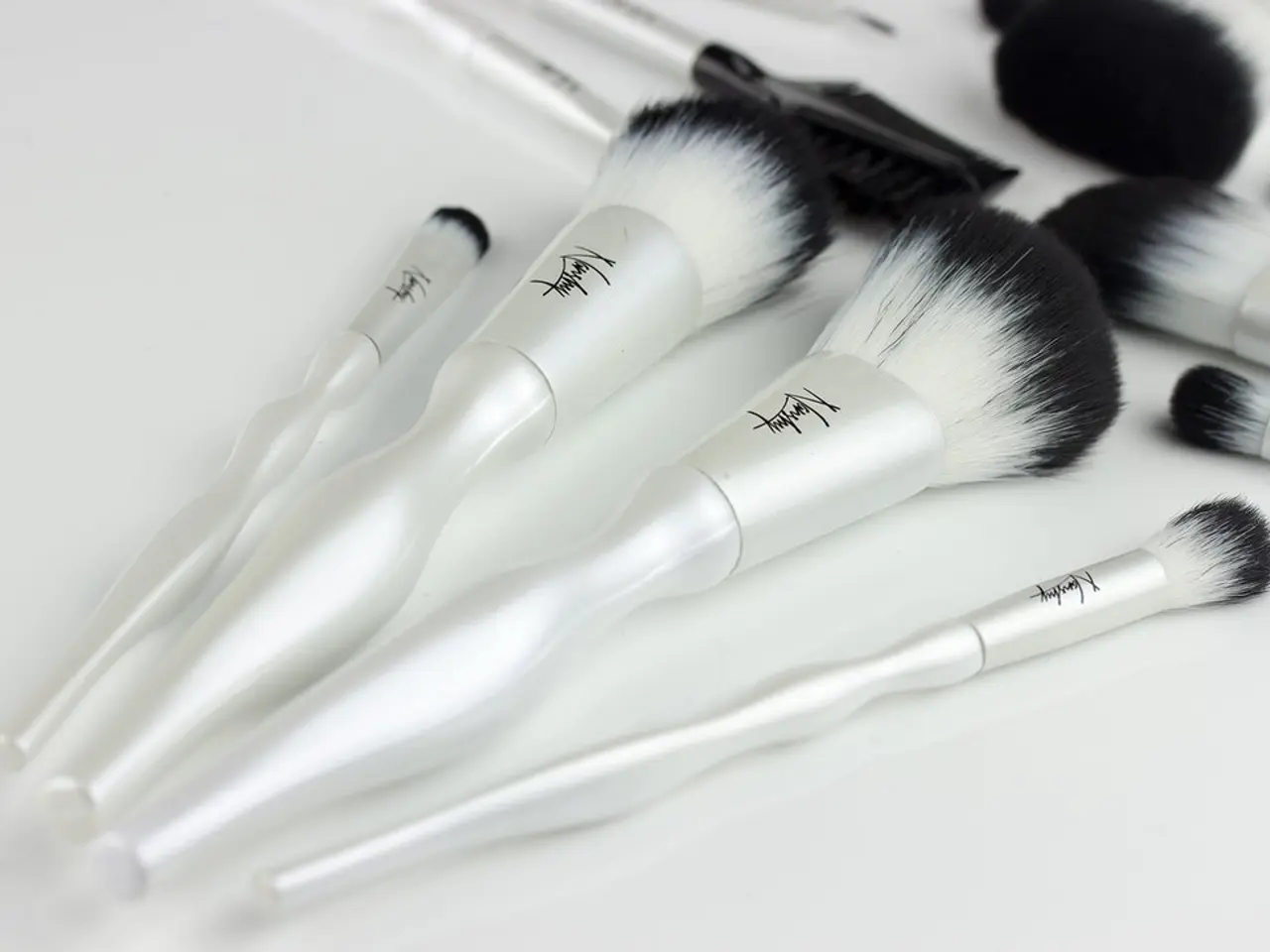Skin care benefits and safety considerations with the use of Sodium Hyaluronate
Unveiling the Power of Sodium Hyaluronate: A Comprehensive Guide
Sodium hyaluronate, a derivative of hyaluronic acid, is a versatile molecule with far-reaching applications in skincare, cosmetic procedures, and medical treatments. This article delves into the benefits, uses, and key differences between sodium hyaluronate and hyaluronic acid.
What is Sodium Hyaluronate?
Sodium hyaluronate is the sodium salt form of hyaluronic acid, characterized by a lower molecular weight that allows it to penetrate deeper into the skin. This property makes it an effective humectant, able to attract moisture and maintain hydration levels[1].
Sodium Hyaluronate vs. Hyaluronic Acid
The primary difference between sodium hyaluronate and hyaluronic acid lies in their molecular size and skin penetration ability. Hyaluronic acid has a higher molecular weight, limiting its penetration to the skin's surface, while sodium hyaluronate's lower molecular weight enables it to penetrate deeper layers of the skin[4][5].
Benefits of Sodium Hyaluronate
- Deep Hydration: Sodium hyaluronate's ability to penetrate deeper into the skin enhances moisture retention, improving elasticity and overall skin health[3][5].
- Reducing Dryness: Sodium hyaluronate can help reduce dryness, making it an ideal ingredient for those with dry or aging skin[1].
- Enhancing Active Ingredients: Sodium hyaluronate aids in the absorption of other active ingredients, boosting their effectiveness[1].
- Tissue Repair: Sodium hyaluronate plays a role in tissue repair, aiding in the recovery of damaged skin[1].
- Increasing Eye Moisture: Sodium hyaluronate is often used in eye drops and ointments to increase eye moisture and soothe dryness[1].
- Plumping Skin: Sodium hyaluronate can plump the skin, reducing the appearance of fine lines and wrinkles[1].
Safety and Uses
The Environmental Working Group considers topical sodium hyaluronate safe, with no increased risk of cancer or reproductive/developmental risks during pregnancy[6]. In skincare products, sodium hyaluronate appears commonly in serums, moisturizers, facial masks, and injectable fillers for its moisturizing properties[2][4][3].
Dermal Fillers: A Cosmetic Treatment
Sodium hyaluronate injections, also known as dermal fillers, are a popular cosmetic treatment used to reduce the appearance of wrinkles, add volume to areas where it has decreased with age, and fill in scars[2]. However, it's essential to note that these injections are not permanent and require "top-up" injections to maintain results[7].
Administration of Dermal Fillers
The procedure of administering dermal fillers involves marking areas to inject, cleansing, application of cold tool or anesthetic ointment, and massaging the filler into place. The entire process takes 15-60 minutes[8].
Precautions
Before having a dermal filler procedure, ensure the doctor is trained and licensed to perform it to reduce the chances of adverse reactions and unsatisfactory results[9]. It's also important to remember that while sodium hyaluronate is well-tolerated and carries no known risks, if any product containing sodium hyaluronate causes irritation, it should be rinsed off and stopped[10].
In summary, sodium hyaluronate is a valuable ingredient in both skincare and cosmetic procedures, offering deep hydration, plumping effects, and improved skin health. Its lower molecular weight allows it to penetrate deeper into the skin, making it a preferred choice in topical products for its enhanced hydration benefits.
References: [1] https://www.ncbi.nlm.nih.gov/pmc/articles/PMC5788370/ [2] https://www.ncbi.nlm.nih.gov/pmc/articles/PMC5788370/ [3] https://www.ncbi.nlm.nih.gov/pmc/articles/PMC6101873/ [4] https://www.ncbi.nlm.nih.gov/pmc/articles/PMC5788370/ [5] https://www.ncbi.nlm.nih.gov/pmc/articles/PMC6101873/ [6] https://www.ewg.org/skindeep/ingredient/704212/SODIUM_HYALURONATE/ [7] https://www.ncbi.nlm.nih.gov/pmc/articles/PMC6101873/ [8] https://www.ncbi.nlm.nih.gov/pmc/articles/PMC6101873/ [9] https://www.ncbi.nlm.nih.gov/pmc/articles/PMC6101873/ [10] https://www.ncbi.nlm.nih.gov/pmc/articles/PMC6101873/
- Sodium hyaluronate, a key component in skincare, is derived from hyaluronic acid and functions as an effective moisturizer.
- This skincare ingredient is ideal for those with sensitive skin, as it can reduce dryness and improve overall skin health.
- With deeper penetration abilities compared to hyaluronic acid, sodium hyaluronate can help plump the skin, minimizing the appearance of fine lines and wrinkles.
- There are several medical-conditions where sodium hyaluronate injections, known as dermal fillers, could provide benefits, such as tissue repair and increased eye moisture.
- Injectable fillers are not a permanent solution and may require "top-up" injections to maintain results.
- It's crucial to consider health-and-wellness factors like discussing any potential medical conditions with a doctor before undergoing cosmetic treatments involving sodium hyaluronate or other skincare products.




